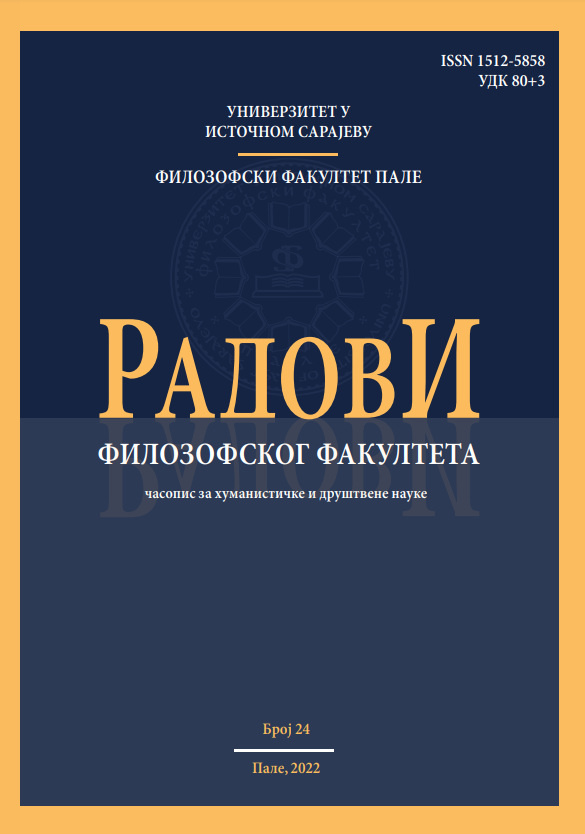ВЕЛИМИР РАЈИЋ: ПЈЕСНИК СУМЊЕ И БОЛА (Импулси Ничеове филозофије у Рајићевој поезији)
VELIMIR RAJIĆ: A POET OF DOUBT AND PAIN (Impulses of Nietzsche’s Philosophy in Rajić’s Poetry)
Author(s): Mirjana M. LukićSubject(s): Studies of Literature, Serbian Literature, 19th Century Philosophy
Published by: Универзитет у Источном Сарајеву, Филозофски факултет Пале
Keywords: Velimir Rajić; perception of God; Friedrich Nietzsche; impulses; Lou Andreas Salome; hymn; Beyond-Man (The Übermensch) ;
Summary/Abstract: In this paper we analysed the poetry of Velimir Rajić (1879-1915), a poet whose life ended when he was only thirty-six years old and who left behind him an opus not immense by its quantity but still noteworthy. We analysed the poems with dominant motifs related to existential helplessness and self-destruction, as well as the poet’s perception of God. Thus, in the opus of Rajić’s poetry we looked for poems that place him in the context of new poetic thought, which marked the first decades of the 20th century. We managed to prove that Rajić’s poem ‘Vjeruju’ (‘They Believe’) influenced the creation of the poem ‘Tamnica’ (‘Dungeon’) written by Vladislav Petković Dis. Comparing these two mentioned poems we concluded that Dis was familiar with Rajić’s poem and that it was inspiring on the level of lexemes, as well as in the process of creating poetic images. Also, one part of the paper has been dedicated to the influences of Nietzsche’s philosophy on the poet’s poetry. This influence can be seen, first of all, in Rajić’s attitude towards the Bible. It seems that in the Rajić’s line ‘Nema Boga!’ (‘There is no God!’), echoes Nietzsche’s exclamation ‘God is Dead’. Nietzsche’s impulses are obvious when it comes to the hymnic and ecstatic notes of Rajić’s poetic thought that very frequently leads into patheticness. Due to the fact that Velimir Rajić could not speak German he was not able to read Nietzsche in the original German, so in this paper we pointed out two poems of Lou Andreas Salome and the text of Milan Đurčin that might get the German thinker closer to the poet himself. Namely, Nietzsche, the philosopher, denied the negative sides of pain and even praised it as a source of his own spiritual growth. The poet Rajić, also, glorified pain and recognised in it impulse for self-preservation and gave way to it.
Journal: Радови Филозофског факултета (часопис за хуманистичке и друштвене науке)
- Issue Year: 2022
- Issue No: 24
- Page Range: 81-99
- Page Count: 19
- Language: Serbian

